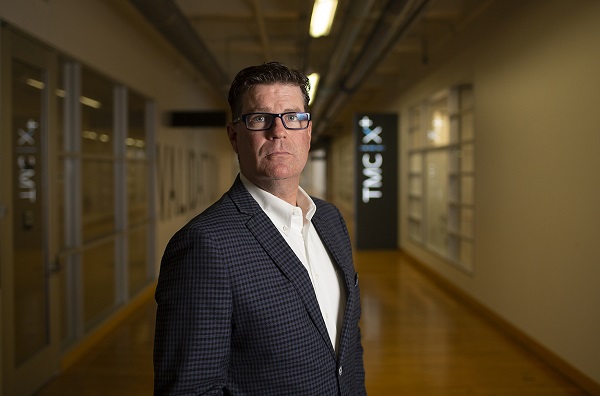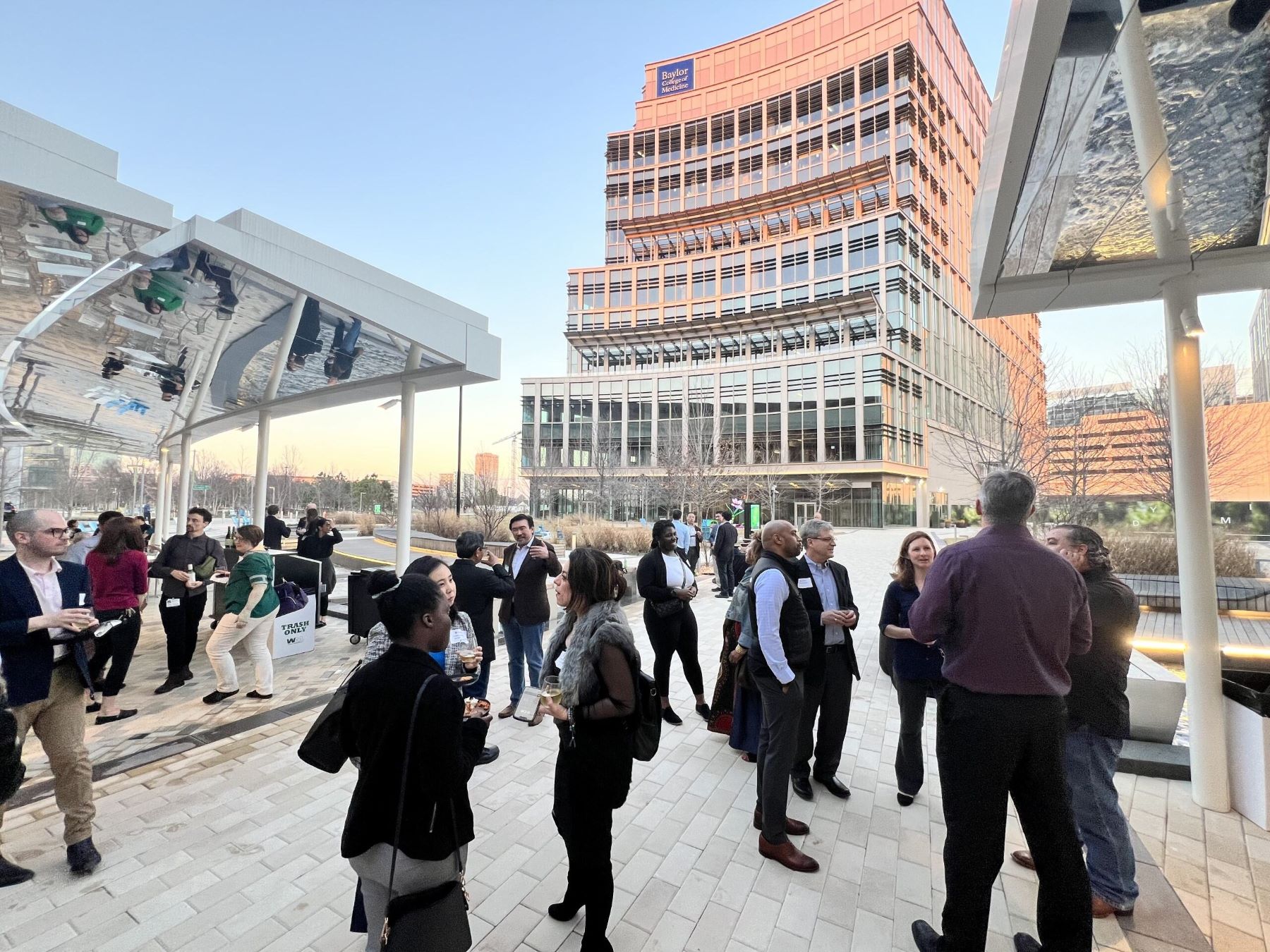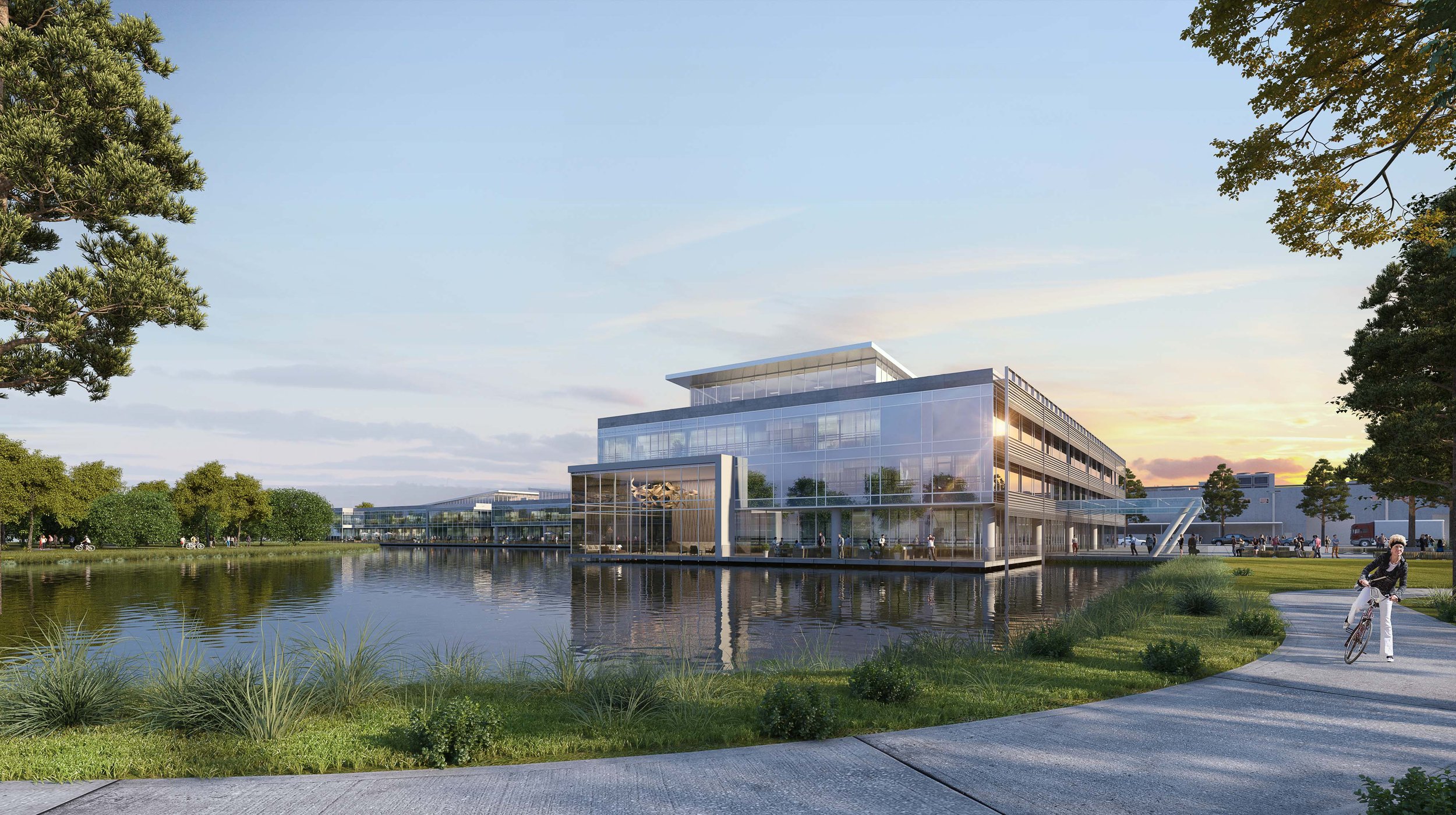5 Questions with TMC Innovation Institute Director Tom Luby
Published Apr 15, 2019 by Maggie Martin
Tom Luby was recently named director of the Texas Medical Center Innovation Institute. Luby previously headed up JLABS @ TMC.
Below, Luby shares his priorities, what he's looking forward to most this year and how the institute fits in with the rest of Houston's innovation ecosystem.
What are your priorities as Director of the Texas Medical Center Innovation Institute?
The Texas Medical Center’s goal is to serve its 61 [institution] members, and everything we do stems from that. At the TMC Innovation Institute, we’re focused on attracting companies from around the globe and showing them the value of establishing a presence in the largest medical city in the world. We want to work with those companies, open doors for them and provide them with solutions that will meet their needs.
We are continuing to build upon the success of TMC Biodesign, our fellowship program that unites the talents of innovators in order to quickly bring breakthrough products to market. And, of course, we will continue to grow our signature TMCx accelerator program, which provides startup companies with shared workspace, a curriculum for entrepreneurs and access to more than 200 advisors. We've had more than 250 companies come through the Innovation Institute that have received more than $900 million in funding, so we’re doing well. But I’m eager to add even more fuel to that fire.
We also want to engage with corporate partners and believe it’s critical that major health care companies establish significant footprints in Houston. Importantly, we’re also working to bring more startup capital to Houston, which is critical to fostering the success of early-stage companies in Houston.
What are the projects and initiatives you’re excited for most this year?
This summer, we will open TMCxi at our John P. McGovern Campus on Holcombe Boulevard. It will be nearly 25,000 square feet of Class A office space that provides a turnkey solution for industry partners who seek to establish a presence in our growing health care ecosystem.
We see TMCxi as an amazing resource for technology companies, venture capitalists and others who want to be in the heart of the Texas Medical Center. It’s an important part of the TMC Innovation Institute, and we’re eager to welcome our new partners here.
Why is innovation in health care—and at the TMC—so important?
It’s important that we always remember: it’s all about the patients. We have a growing population of older adults, and we all know that end-of-life health care tends to be the most expensive. We need solutions that will provide people with the opportunity to live longer, healthier, high-quality lives, and hopefully prevent them from becoming long-term patients.
When we talk about innovation, we often talk about devices, but we’re also talking about other forms of innovation. We want to see innovation in the way that health care is packaged and delivered too. Health care is expensive, and it needs to be more efficient. We think innovation means addressing those challenges as well.
How does your organization fit into Houston as a growing innovation hub?
The TMC Innovation Institute is on the leading edge of Houston’s growing health care startup ecosystem. Our job is to enable our members to more efficiently turn their work in basic science and translational research into new products that will ultimately help patients. It’s also to connect our members to the startups that are developing the tools they need to continue providing world-class, cutting-edge health care. Additionally, our role is to recruit health care capital that can provide the crucial funding startups need to deliver on the promise of innovation.
We are engaging with large health care companies and showing them the tremendous value of establishing a presence in a place that’s home to 9,000-plus patient beds and some of the top researchers and clinicians from around the world. Importantly, we recognize that top talent has the opportunity to work anywhere, so we continue to play a key role in recruiting the world’s best to the Texas Medical Center.
The TMC Innovation Institute’s vision is “to become the global leader in health and life science innovation.” How do you envision meeting that goal?
We’re going to continue pushing to grow and develop that startup ecosystem here. We’ll be working with our member institutions to do that, as well as other partners in the startup space here in Houston. There is so much momentum right now. I think it’s increasingly clear to the world that if you’re a health care startup, you really need to have a foothold in the Texas Medical Center.
I keep saying this, but that’s because it’s so important. A big part of accomplishing our goals will require more and more startup capital to invest in early-stage companies in Houston. We’re putting our money where our mouth is and investing $25 million in early-stage companies through the TMC Venture Fund. It’s our job to continue drawing the talent here, and to show the value of investing in our ecosystem. If you’re a venture capitalist or corporate partner interested in what’s happening in our health care startup ecosystem — come see us.
 The Houston Report
The Houston Report





















